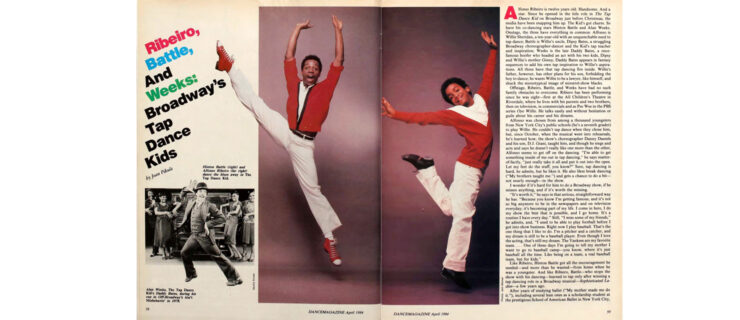Norma Canner (1918–2012)
Photo courtesy Karen Canner Moss.
Norma Canner, a beloved and widely influential teacher of creative dance, passed away on February 9. A tiny woman with a mop of curly hair and twinkling eyes, she held an impassioned belief in the value of dance for all people no matter their age or physical condition. Her legacy is the large number of students who carry on her work across the United States, Europe, and Israel.
During her long tenure as professor of dance therapy at the Lesley University Graduate School, Cambridge, MA (1974–1987), Canner taught classes in the Expressive Therapies Division, supervised student teaching placements, and conducted a private practice. She also taught at Tufts University and the Harvard Summer Dance Center.
Many students first encountered Canner at the Lesley Art Institute summer seminars during the late 1970s–1980s where she led the morning wake-up circle. Bobbing and weaving in the midst of some 60 participants, she would initiate chanting, body slaps, and ecstatic gestures, while welcoming others to join her in the center. Few could resist her invitation.
Photo courtesy Karen Canner Moss.
After a stint on Broadway, appearing as an actress under her maiden name, Norma Green, in No for an Answer and The Children’s Hour, Canner turned to creative dance studies with Barbara Mettler, Marian Chace, Janet Adler, and Anna Halprin. When she began teaching movement classes in Toledo, Ohio, in the 1950s, she worked with children and special-needs populations, which became her life-long interest. By the 1960s, after she moved to the Boston area, she established a pilot program for the Massachusetts Department of Mental Health in movement and dance for pre-school children where teachers were also trained, and worked with multi-handicapped children at Perkins School for the Blind. After she retired from Lesley in 1987, she led workshops on dance therapy in Kansas, Switzerland, and Israel and continued her private practice. According to Mitchell Kossak, who studied with Canner and directs the division of Expressive Therapies at Lesley, “We became her colleagues and her friends after we were her students.”
Canner was the author of …and a time to dance (Beacon Press, Boston, 1968), a book about her work with special needs children, and the subject of a feature-length documentary, A Time to Dance: The Life and Work of Norma Canner. (2000, BTI Films, Inc.). —Iris Fanger




